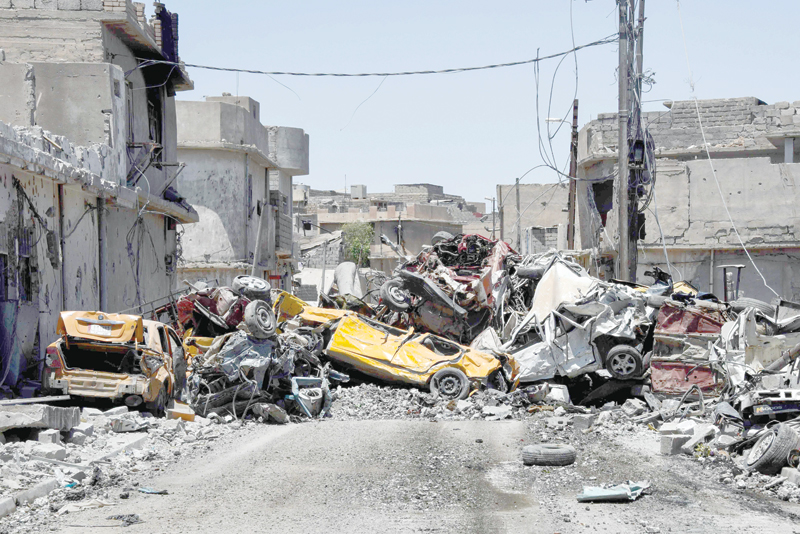

Mosul: Three years after the IS group routed them in Mosul, Iraqi forces are now on the cusp of retaking the city from the extremists and avenging a historic debacle.
The fall of Mosul was the worst defeat that Iraqi forces suffered in the war with IS, and regaining it would cap a major turnaround for security forces that broke and ran despite outnumbering the extremists who attacked the second city in 2014.
“Of course, we celebrate the successes of the military” three years after the city’s fall, said Staff Lieutenant General Abdulghani al Assadi, a senior commander in Iraq’s elite Counter-Terrorism Service, which has spearheaded the battle.
When IS seized Mosul on June 10, 2014 and drove south towards the federal capital, the atmosphere was not one of celebration, but rather fear.
“Three years ago, around this time, Daesh... was moving rapidly towards Baghdad,” said Brett McGurk, the US envoy to the international coalition against IS, using an Arabic acronym for the extremist group.
“Mosul fell, seven divisions of the Iraqi security forces simply disintegrated,” he said. Iraqi forces “were not prepared for a threat like that” posed by IS in 2014, said coalition spokesman Colonel Ryan Dillon.
IS “was knocking on the doors of Baghdad.” At that time, recovery “looked almost impossible, and many were saying, ‘Well, this is the end of Iraq’”, McGurk said.
A combination of factors ultimately stopped the extremists short of Baghdad, and they were not able to launch a large-scale conventional attack on the capital.
Grand Ayatollah Ali al Sistani, the country’s top cleric, called for volunteers to battle IS, and pre-existing militias fought under that banner to first halt the extremists and then slowly push them back, while new volunteer units were also established.
The United States meanwhile launched an air campaign against IS in Iraq about two months after Mosul’s fall, which became an international coalition effort also involving training and other support for Iraqi forces.
The Iraqi security forces have since recaptured much of the territory seized by IS, including three cities, and have retaken most of Mosul, the fourth and largest. In Mosul, “nothing remains for Daesh except three or four neighbourhoods in which it is surrounded,” Assadi said.
When IS seized Mosul, “the units that were present were in fact lacking some preparations and some equipment... and therefore the fall (of the city) happened quickly,” he said.
“Now the units are well prepared and their relationship with the citizen — and this is a very important point — is a good relationship and the citizen cooperates with the units,” Assadi said.
“Success in the Mosul operation will highlight how far the Iraqi Security Forces (ISF) have come since their collapse in June 2014,” said Patrick Martin, Iraq analyst at the Institute for the Study of War.
But Martin noted that “recapturing terrain in Mosul should not obscure the fact that the ISF remains incomplete and flawed,” including that “they still have insufficient manpower to clear and hold the country.” — AFP
Oman Observer is now on the WhatsApp channel. Click here



